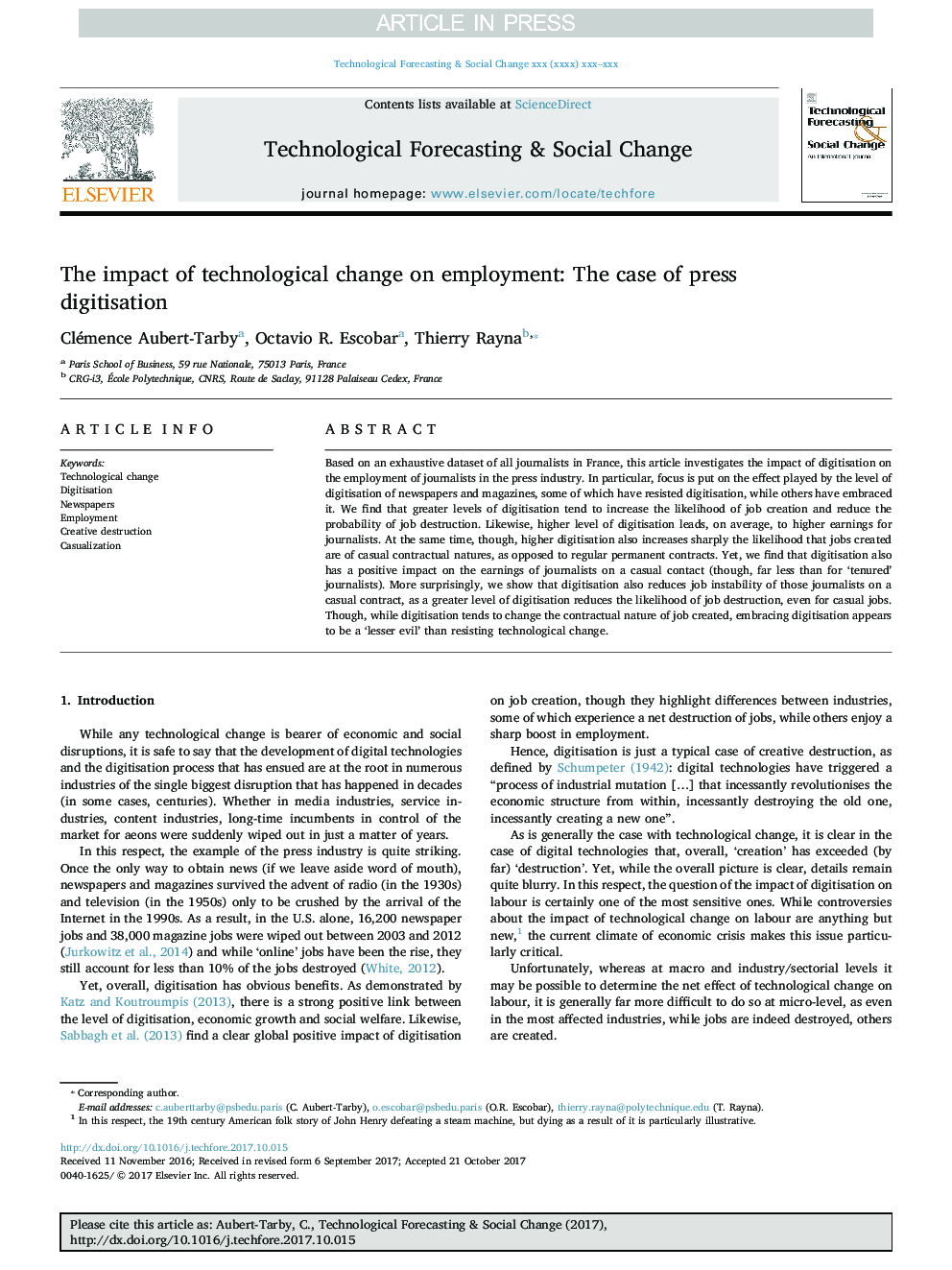| Article ID | Journal | Published Year | Pages | File Type |
|---|---|---|---|---|
| 7255616 | Technological Forecasting and Social Change | 2018 | 10 Pages |
Abstract
Based on an exhaustive dataset of all journalists in France, this article investigates the impact of digitisation on the employment of journalists in the press industry. In particular, focus is put on the effect played by the level of digitisation of newspapers and magazines, some of which have resisted digitisation, while others have embraced it. We find that greater levels of digitisation tend to increase the likelihood of job creation and reduce the probability of job destruction. Likewise, higher level of digitisation leads, on average, to higher earnings for journalists. At the same time, though, higher digitisation also increases sharply the likelihood that jobs created are of casual contractual natures, as opposed to regular permanent contracts. Yet, we find that digitisation also has a positive impact on the earnings of journalists on a casual contact (though, far less than for 'tenured' journalists). More surprisingly, we show that digitisation also reduces job instability of those journalists on a casual contract, as a greater level of digitisation reduces the likelihood of job destruction, even for casual jobs. Though, while digitisation tends to change the contractual nature of job created, embracing digitisation appears to be a 'lesser evil' than resisting technological change.
Related Topics
Social Sciences and Humanities
Business, Management and Accounting
Business and International Management
Authors
Clémence Aubert-Tarby, Octavio R. Escobar, Thierry Rayna,
